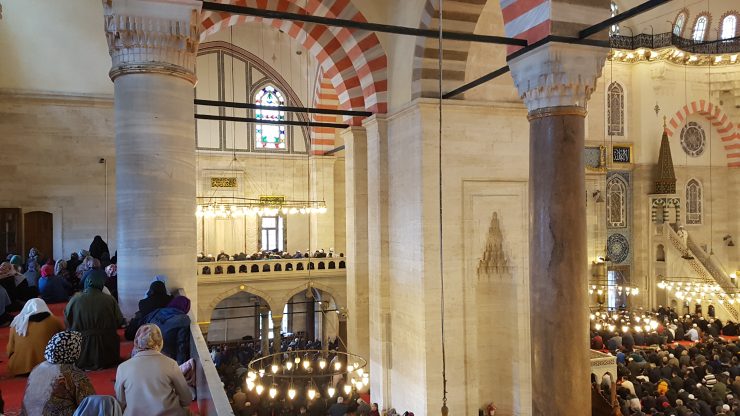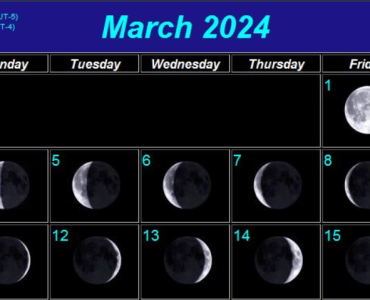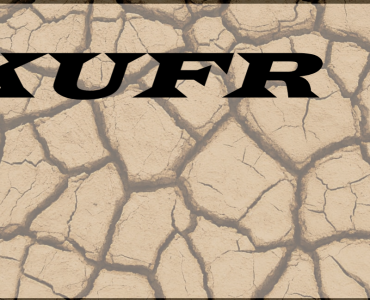About the Friday Prayer, Allah The Almighty commands:
“O you who believe! When the call is made for prayer on Friday, proceed to the remembrance of Allah and leave off trading; that is better for you if you knew. And when the prayer has ended, disperse within the land and seek of Allah’s grace, and remember Allah often, so that you may attain what you hope for.” (Al-Jumua / Congregation 62:9-10)
1. For Whom is the Friday Prayer Obligatory?
From the verses, it can be understood that the Friday prayer is not obligatory for everyone. Trade or shopping is done in certain places, where the Muslims have been dispersed all over.
Abdullah b. Umar tells that the Messenger of Allah, Muhammad, said: “The Prayer of Friday is obligatory to everyone who hears the call.[2]
For none of the other obligatory prayers, the Qur’an uses the expression “better”. Because the five daily prayers are due in any condition while the prayer of Friday sometimes might not be prayed. On a rainy day, Abdullah b. Abbas told the muadhdhin to recite the adhan for Friday Prayer but not to call people to the mosque, and tell them to pray at home. People seemed to be uncomfortable with this odd situation. He said:
“Someone better than me has done this before[3]. Friday Prayer is a duty. I didn’t want to give you hardship; otherwise, you would have to walk on the muddy and slippery ground[4].”
Prophet Muhammad’s (p.b.u.h.) wife, Aisha, narrated: “People were coming to Friday Prayer from distant places by taking turns. They were sweaty and covered with dust and dirt. When Prophet (p.b.u.h.) was by me one of them came to him, and he said “ Wish you were cleaned up for this day.””
Muawiyya asked Zayd b. Arkan in Damascus: “Have you ever witnessed two Eids in the same day during the time of the Prophet?”. “Yes,” replied Zayd. “What did he do?” Zayd said: “We prayed the eid prayer and He said Friday Prayer was up to us and we can pray if we want.[5]”
Abu Huraira related that the Prophet of Allah said: “Today two Eids are in the same day, who don’t want to pray the Friday Prayer, are free not to, but we will.[6]”
Ata b. Abi Rebah says: An eid on a Friday, Ibn’uz-Zubayr led us to pray Eid Prayer. Later we went to the mosque for the Friday prayer but he didn’t show up, so we prayed on our own[7]. Ibn Abbas was in Ta’if. When he came back we explained him this situation, he said that Ibn’uz-Zubeyr was in compliance with the sunnah[8].
2. The Call (Adhan) Of Friday Prayer
As said in this verse “O you who believed! When the call is made for prayer on Friday, then proceed to the remembrance of Allah…” (Al-Jumua/ Congregation 62:9) the call should be made in a gathering or a market place so people would have the possibility to stop their trade or shopping and go to pray.
Medina had a market place, a bazaar and multiple mosques. But The Friday was prayed in only Prophet’s mosque. According to Ibn Abbas, besides Prophet’s mosque, first time the Friday Prayer was prayed in another place was in the region of Bahrain, in Cuvasa, the Abdulkays Mosque.[9]
According to Ata b. Abi Rebah, if you will be in a place where all necessities are provided within that community, and Friday Prayer call is made, whether you hear it or not, you will be obligated go to pray. Anas sometimes attended, and sometimes did not on Fridays from his house in Zawiya, 11370m away from the mosque[10].
The son of Ka’b b. Malik Abdurrahman said, his father was asking forgiveness for As’ad b. Zurare whenever he hears the call for prayer on Fridays. He asked why he was doing that. He told his son that As’ad b. Zurare led them for a Friday Prayer for the first time in a place called Nebit by the rocks of Beni Beyada[11], in meadows named Naki’u’l –Hadman and they were fourty[12].
3. The Ethics of Going to Prayer
Abu Huraira related from the Prophet (p.b.u.h.) : “When you are going to pray don’t run, go slowly; pray when you reach then complete those you miss[13].
4. Things to Do When Friday Prayer is Over
As Abu Musa al-Ash’ari informs The Prophet of Allah said: “The time of Friday is the period from when imam (prayer leader) sits on minbar (pulpit) to the end of the prayer[14]. The Friday Prayer is two parts (rakaat)”. Abdullah b. Omer (r.a.) relates: “The Prophet of Allah does not pray in masjid after the Friday Prayer until he leaves, then prays two other parts at home.[15]”[16]
As the verse commands: “And when the prayer has ended, then disperse within the land.”, so should be obeyed.
One Friday after the prayer, Abdullah b. Umar saw a man praying another two parts of prayer, he pushed him and asked: “Do you want to pray the Friday Prayer four parts?” Abdullah b. Umar was praying two parts at home and says: “This is what the Prophet of Allah was doing[17].”
If Abdullah prayed the Friday Prayer in Mecca, he moves forward and prays two extra parts, then moves further and prays another four parts. If he was in Medina, he prays the Friday Prayer then goes back home and prays two more parts; not in Mosque. He was saying: “This is what the Prophet of Allah was doing.[18]”
Umar was extending his prayer before the Friday Prayer, after the Friday Prayer he goes home and prays two parts and says: “This is what the Prophet of Allah was doing.[19].”
As-Saib relates “ I prayed Friday Prayer with Muawiyya in the private section of the mosque. After imam finished the prayer I started to pray at the same place. Muawiyya sent me someone and he told: “Never repeat what you just did again. After the Friday Prayer, don’t pray any more without going out or talking to someone. This is how the Prophet of Allah instructed us. He didn’t want us to add a prayer to another one without talking to someone or walking out.[20]”
Abu Huraira related that the Prophet of Allah (p.b.u.h.) said: “If you are going to pray after Friday Prayer, make it four parts[21].”
5. The Day of Friday
It has been related that Abu Huraira heard these words from the Messenger of Allah (p.b.u.h.): “We as the last ummah, will be leaders on The Day of Rising although Books were given to other ummahs (communities). The Day of Friday was also given to them but they came into conflict. Then Allah has given us this day, and now that other ummahs are following us. Jews have tomorrow (Saturday) and Christians the following day (Sunday) [22].
In one hadith related by Abu Huraira and Huzaifa, the Messenger of Allah says: “Allah The Almighty, made those past ummahs lose Friday; so Saturday became the day of Jews and Sunday of Christians. Allah brought us to this world and showed Friday to us. Thus, He made Friday, Saturday and Sunday holy days. They will follow us on the Day of Rising. We are the last to live in this world but will be the leaders on the Day of Rising. And one more thing, we will be the first to have our reckoning concluded that day.[23]”
6. The Value of Friday
Abu Huraira relates that the Prophet (p.b.u.h.) said: “Any person who takes a bath on Friday like the major ablution (ghusl) and then goes for the prayer (in the first hour i.e. early), it is as if he had sacrificed a camel in Allah’s cause; and whoever goes in the second hour, it is as if he had sacrificed a cow; and whoever goes in the third hour, then it is as if he had sacrificed a horned ram; and if one goes in the fourth hour, then it is as if he had sacrificed a hen; and whoever goes in the fifth hour then it is as if he had offered an egg. When the Imam comes out (i.e. starts delivering the Khutba), the angels present themselves to listen to the Khutba.” [24]”
Selman AI Farsi narrates that the Prophet (p.b.u.h.) said “The Prophet (p.b.u.h) said, “Whoever takes a bath on Friday, purifies himself as much as he can, then uses his (hair) oil or perfumes himself with the scent of his house, then proceeds (for the Jumua prayer) and does not separate two persons sitting together (in the mosque), then prays as much as (Allah has) written for him and then remains silent while the Imam is delivering the Khutba, his sins in-between the present and the last Friday would be forgiven. [25].”
Abu Huraira relates that the Messenger of Allah (p.b.u.h.) said: “Whoever washes himself, participates the Friday prayer, prays extra, and keeps silent while the imam is speaking, his sins between the previous Friday and that Friday will be forgiven beside that three extra days will be added.[26]”
7. Special Clothes for FridayMuhammad b. Yahya relates that the Messenger of Allah said: “If you can find, you would better get yourself different clothes for Friday than the work clothes.[27]”
8. The Self Cleaning for Friday
Samurah b. Jundub relates that the Prophet said: “Whoever takes wodoo on Friday does good, having bath is better [28].”
Abdullah b. Umar relates that the Prophet said: “Get washed before coming to Friday Prayer [29].”
While Umar, son of Hattab, was standing and speaking the khutba, one of the first immigrant companions of the Prophet (p.b.u.h.) entered[30]. Umar called him: “What is this time?” That guy replied: “I was busy, I could not get back to home before I heard the Call of Prayer, so I could only take wodoo. ”
Umar said: “Again just wodoo? You know well that the Messenger of Allah told us to have bath. [31]”
Abu Huraira relates that the Messenger of Allah said: “Having bath at least once a week, including his body and hair, is the duty of every Muslim. [32]”
9. The Usage of Perfume for Friday Prayer
Abu Said al-Khudri claimed that he witnessed these words of the Prophet (p.b.u.h.): “Having bath on Fridays is duty of every Muslim who reached puberty. Cleaning teeth and putting on perfume also. [33].”
10. Friday Time
Anas b. Malik said that the Prophet (p.b.u.h.) prayed the Friday Prayer the time when sun started to decline from the zenith. [34] [35]
Anas b. Malik told that: “On Fridays we used to rush and having the siesta (qaylulah) [36] right after the Friday Prayer.[37]” Anas b. Malik added: “The Prophet prayed the Friday Prayer early on cold days and late on hot days waiting for the weather to cool down.[38]”
Salama b. al-Akwa related: “We prayed the Friday with the Prophet when the sun started to decline to west and then after the pray we turned around to look for a shadow.[39]”
It is related that Salama b. Al-Akwa said: “After praying the Friday together with the Messenger of Allah we turned around and looked for a shadow beside walls, but would not be able to find.[40]”
11. The Calls (Adhan) on Friday
As-Saib b. Yezid relates: “On Fridays the adhan was called after the imam took his place.[41]”
As-Saib b. Yezid informs: “At the time of the Prophet, Abu Bakr and Umar, the first call was made after the imam took his place on member (a pulpit in the mosque where the imam stands to deliver sermons). At the time of Osman when the number of people increased, the third call on az-Zawra (name of the marketplace in Madina) was added.[42]”
The first call was for the noon prayer time. The second was when imam sits on the minbar (pulpit). The third call was made right before the Friday Prayer ‘iqamat’ [43].
Az-Zawra was a place in the marketplace of Medina. Ibn Battal claims that it was a big rock at the entrance of the mosque. Ibn Majah and Ibn Huzayma on this issue give this explanation: “He started to have the third call made in the marketplace on top of a building called az-Zawra.[44]”
Abu Umama b. Sahl b. Hunayf relates: “When the call started while Muawiya was on the member, the muadhdhin said “Allah-u akbar, Allah-u akbar (Allah is great, Allah is great!)” Muawiya repeated. When the muadhdhin said: “Ashadu anla ilaha illallah (I witness that there is no other God, but only Allah!)”, Muawiya said “Me too!”, when the muadhdhin said “Ashadu anna Mohammadan abduhu wa rasuluhu (I witness that Mohammad is His servant and His messenger!)”, Muawiya said “Me too!”. After completing the call Muawiya said: “O People! I heard the Messenger of Allah saying the same words as I said when he was sitting at this place.[45]”








Add comment